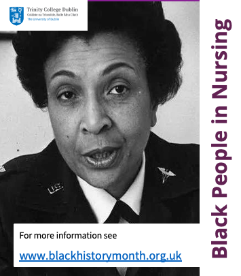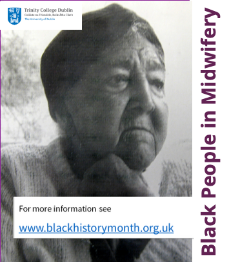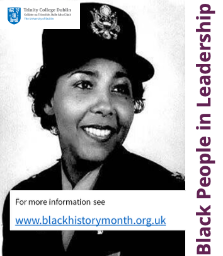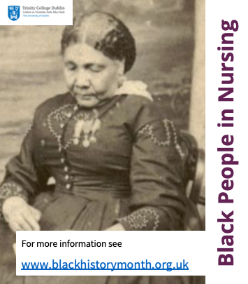 Hazel Johnson Brown
Hazel Johnson Brown
16th chief of the US army nurse corps. Initially rejected by West Chester School of Nursing (SN) because of her race, she enrolled in Harlem Hospital SN and earned her BSN in 1959. She then qualified as an operating room nurse and worked at Walter Reed Hospital from 1960-1962 when she left to pursue her master’s degree. In 1983, following her army career she accepted an appointment as assistant professor at Georgetown SN.
Margaret Charles Smith 
Born in 1906 in rural Alabama, Smith supported her first birth when she was only five years old. She left school after third grade. Little by little she began working as a midwife. She would even travel 200 miles to Tuskegee’s Andrew Memorial Hospital (one of the first hospitals ever to admit Black patients) if one of her patients needed emergency treatment. Smith was awarded the keys to her hometown in 1983 for her amazing work as a midwife.
 Lieutenant Colonel Charity Adams
Lieutenant Colonel Charity Adams
In 2023, the U.S. Army base Fort Lee was redesignated as Fort Gregg-Adams in honor of both Charity Adams and Lieutenant General Arthur Gregg. She was instrumental in clearing a massive backlog of mail for US soldiers in Europe, working under difficult conditions despite facing segregation. After the Army, she continued her life of service, founding the Black Leadership Development Programme.
 Mary Seacole
Mary Seacole
Mary Seacole's reputation after the Crimean War (1853-1856) rivalled Florence Nightingale's. Unlike Nightingale, Seacole also had the challenge to have her skills put to proper use in spite of her being black. A born healer and a woman of driving energy, she overcame official indifference and prejudice.
For more information see www.blackhistorymonth.org.uk.
